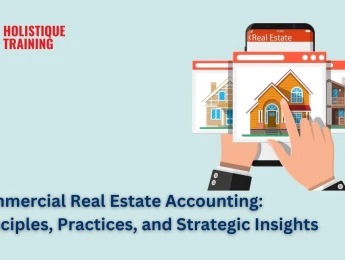In any department, it’s important to have an overview and understanding of accounting procedures to remain within budget and make important financial decisions. Understanding how your finances can affect wider business performance and change is crucial to staying ahead of the market and remaining competitive.
As a manager involved in making financial decisions, you will need to understand the most relevant tools and techniques which assist in project planning and budgeting in specific departments.
Understanding how to read and interpret company financial statements will allow you to understand the impacts of change in your department, how to predict future trends and forecast your sales and allow you to develop an accurate picture of your business’s future. Financial statements can also prove the usefulness of changes and give you an edge over competitors when attracting potential stakeholders and partners.
To fully understand your financial position, you must have a basic working knowledge of accounting processes and procedures and understand accounting terminology. This will assist you in making positive decisions based on your financial position and allow the company to improve and generate more profit with accurate data and statement backing.
Upon completion of this course, participants will be able to:
- Consider financial concepts when making company decisions.
- Understand basic accounting terminology.
- Utilise financial statements as evidence of project success.
- Discuss financial statements as part of your project planning processes.
- Use basic accounting methodology to structure your project plans.
- Build an effective relationship between operations and finance.
- Communicate financial decisions based on accounting procedures.
- Implement an action plan based on your financial successes and failures.
This course is designed for anyone required to make financial decisions for the benefit of the wider business or anyone who aims to improve their working knowledge of accounting processes. It would be most beneficial for:
- Business Owners
- Finance Directors
- Chief Financial Officers
- Operations Managers
- Project Planners
- Trainee Accountants
- Account Managers
- Change & Control Managers
- Risk Assessors
This course uses various adult learning methods to aid full understanding and comprehension. Participants will review real-world case studies to understand positive financial decisions based on financial statements and have access to mock financial statements to help aid the decision-making process.
They will view presentations, conduct group discussions to understand accurate accountancy terminology, and develop communication skills to secure financial support and stakeholder buy-in. Finally, participants will work together to review their departments and understand how financial planning can improve their processes and help with performance. They will take away key actions to aid continuous improvement.
Day 5 of each course is reserved for a Q&A session, which may occur off-site. For 10-day courses, this also applies to day 10
Section 1: Accounting Basics
- Financial and management accounting styles.
- Your conceptual framework and what it means.
- Financial information and quantitative data.
- Your business entity requirements.
- Reporting and financial statement interpretation.
Section 2: Utilising Accounting Systems & Tools
- Income statements and balance sheets.
- Cash Flow statements.
- Your costs of sales on financial statements.
- Accounting concepts and management rules.
- Accurate record-keeping.
Section 3: Your Department Analysis
- Statement analysis for stakeholder investment.
- Horison trend analysis.
- Vertical and ratio analysis examples.
- Assessing and identifying risk areas and weaknesses in your operation.
Section 4: Stakeholder Buy-In
- Stakeholder management and communication.
- Managing expectations.
- Use financial statements to back your forecasts and change plans.
- Conference calls and earnings adjustments.
- Media relations and financial management.
- Social media and making announcements.
Section 5: Business Planning & Decision-making
- Business planning and control.
- How to set your budget accurately.
- Organisational budget mapping and change implementation.
- Limitations and budgeting issues.
- Recovering from overspending.
- The role of your budget in your business roadmap.
- Preparing and allocating a budget.
- Your change analysis.
Section 6: Budgeting & Key Actions to Aid Performance
- The controllability principle and your responsibilities as a department manager.
- Profit-related performance metrics.
- Variance analysis and costing.
- Investment centres, performance-related costs.
- Creating a balanced scorecard.
- Considering your external influences.
Section 7: Cash Flow Analysis & Pricing
- How to budget effectively.
- Common budgeting tools.
- Future forecasting and cash management.
- Analysing your cash flow.
- Absorption costing.
- Marginal costing and activity-based costing (ABC).
- Financial lifecycle management.
Section 8: Investments, Spending & Operational Changes
- Investment appraisals and evaluation.
- Real-world risks and recovery.
- Developing a strategic plan.
- Cost, volume, and profit analysis (CVP).
Upon successful completion of this training course, delegates will be awarded a Holistique Training Certificate of Completion. For those who attend and complete the online training course, a Holistique Training e-Certificate will be provided.
Holistique Training Certificates are accredited by the British Assessment Council (BAC) and The CPD Certification Service (CPD), and are certified under ISO 9001, ISO 21001, and ISO 29993 standards.
CPD credits for this course are granted by our Certificates and will be reflected on the Holistique Training Certificate of Completion. In accordance with the standards of The CPD Certification Service, one CPD credit is awarded per hour of course attendance. A maximum of 50 CPD credits can be claimed for any single course we currently offer.
- Course Code PF1-117
- Course Format Classroom, Online,
- Duration 5 days














